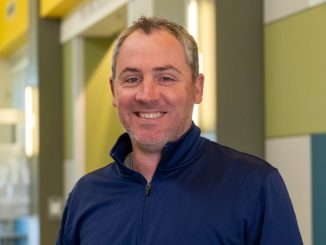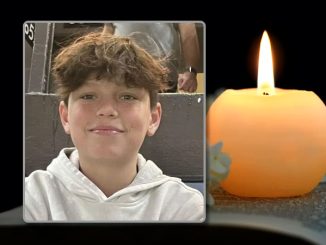
Although Luling native Tammy Faucheux had already had three healthy children, it was apparent early on that the family’s latest addition, a baby girl named Kaydence, was going to need extra attention.
Kaydence was born in 2012 and at first she seemed like a normal, healthy baby. However, soon after her birth she began to experience problems. First off, she had a milk allergy and required extra medical attention to ensure she was receiving the proper nourishment. This led to frequent trips to the hospital.
“She was a wonderful baby and then at two weeks old she started crying all of the time and it wasn’t a normal cry. Then she would grunt all of the time,” Faucheux said.
Faucheux said when Kaydence happened to grunt during one of the family’s trip to the doctor, she began to realize something more severe may be wrong with her baby girl.
“One time when I took her to the doctor she grunted and they said it sounded like respiratory distress,” she said.
It was apparent that Kaydence was having trouble breathing. After a battery of tests, doctors came across a startling discovery.
“Her white blood cell count was so high they were afraid she would get septic,” Faucheux said.
Still, they had not determined the source of the problem. It was not until a nurse decided to check Kaydence’s oxygen saturation levels that they realized the severity of her condition.
“One of the nurses walked into her room, heard her grunting and checked her oxygen and realized it was really low,” Faucheux said.
While healthy babies have oxygen saturation levels near 100 percent, Kaydence’s was only in the low 80s.
She was immediately hospitalized until medical staff could get a better idea of what affliction she was suffering from. Shockingly, Kaydence was eventually diagnosed with a rare lung disease called Surfactant Protein C Deficiency.
The disease is caused by a genetic mutation in one of the proteins that lubricates Kaydence’s lungs, which wasn’t allowing them to function properly.
Doctors delivered the news that Kaydence would have to undergo a double lung transplant by the age of 10.
The 5-month-old Kaydence was hospitalized for five weeks straight, the entire time receiving oxygen while doctors tried to stabilize her condition.
When she was finally able to leave the hospital, Kaydence required fulltime care.
“She started IV steroid infusions three days a month. She did it for 19 months. They have some very bad side effects and they can’t do them forever due to the side effects,” Faucheux said.
Despite all of the problems Kaydence has had to face at such a young age, Faucheux said it could have been worse. If another protein in her lungs had the defect she likely would have died within a few months.
“A lot of these babies that have these lung diseases pass away. If I wouldn’t have been watching and taking her to the doctor, she would not have survived for long due to being deprived of oxygen,” Faucheux said.
Despite the constant medical care, Faucheux said Kaydence has had a great attitude through it all.
“She has been doing really well, but I guess this is all she knows,” she said.
Now the family is trying to develop a long-range plan to deal with Kaydence’s recovery.
Faucheux said she has received help for her daughter, and learned what to expect as she battles the disease, by joining an online community made up of parents whose young children suffer from lung ailments.
“When she was first diagnosed and we were waiting for treatment I would just hold her and she would cry all the time. We would sit in the rocking chair and as she was sleeping I would have my phone or tablet and do research. I found this group on Facebook and it was all about parents with kids who have lung issues,” Faucheux said.
By communicating with other parents who are going through similar circumstances, Faucheux has been able to better care for Kaydence, but she still needs further help from the medical community. The family plans to attend a conference next month in Denver where the parents of children with rare lung diseases can interact with doctors who treat those disorders.
By attending the conference, Faucheux said she hopes to find out about different treatments that may prolong the need for a lung transplant.
“The doctors will tell you what treatment they use and what trials you may be able to get your child into,” she said.
In fact, Faucheux said her ultimate goal is to help find a cure over the next eight years that will eliminate the need for a lung transplant altogether.
“We really just pray they get some research going and they could find something where we could avoid a transplant. We don’t want that done,” she said. “Once you get a transplant, your immune system is horrible and you take anti-rejection medicine. I’ve had parents tell me that after the transplant their child has gotten sicker.”
In order to get to Denver, Kaydence needs to take a flight, which is impossible without a portable oxygen concentrator that costs thousands of dollars and is too expensive for the family to purchase. Faucheux said she has been in contact with a medical supply company that has offered to purchase the machine and then rent it to them during the trip for $500, but even that is out or reach for the family.
Thus, Faucheux has turned to fundraisers to help raise money for the medical equipment necessary for the trip.
Faucheux has made t-shirts that she is selling through her Facebook page, but she is also asking for donations to be made to an account set up in her daughter’s name.
Anyone who would like to assist in raising funds can do so by donating to the “Kaydence Lusk donation account” at any Capital One Bank branch.
Faucheux can also be contacted at (985) 634-3703.




Be the first to comment